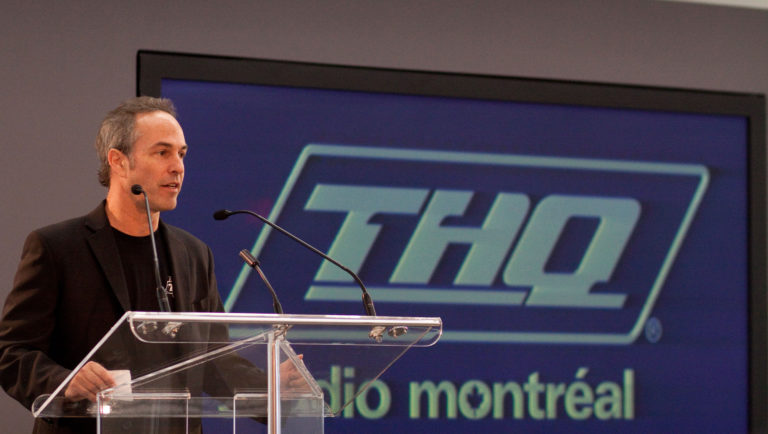
In a time when most industries are cutting jobs, the video game industry is adding them. But, alas, many of those jobs will be outside of California.
Why? Big subsidies are luring them elsewhere.
Two local video game publishers, THQ Inc. and Warner Bros. Interactive Entertainment Inc., recently launched studios in Montreal, where tax breaks allowed them to recoup much of their labor costs. California does not offer such incentives.
“They’re going to go make the games where it’s most cost-effective,” said Patrick Sweeney, an attorney for Reed Smith in Century City who specializes in interactive entertainment law.
THQ of Agoura Hills opened its Montreal studio in October. Danny Bilson, the company’s executive vice president of core games, said the provincial government of Quebec will rebate 37.5 percent of THQ’s labor costs. The company has agreed to employ at least 400 by 2015; the majority will be hired in Quebec.
And that means big savings for THQ.
“The financial incentive is huge,” Bilson said. “These games are incredibly expensive to make. But it costs us less money per man to be in Montreal.”
The Montreal studio has 30 employees, but Bilson said THQ will be hiring more in the spring.
The company has not announced what game will be developed out of its newest studio, but the staff is helping with “Homefront,” a first-person-shooter game that will hit shelves in March, and will also help with the publisher’s online game “Dark Millennium.”
Bilson said the tax breaks in Montreal will help the company financially.
“The biggest challenge for the business has been the cost of games and how many units we have to sell to get our money back,” he said. “In order to take the pressure down on how many units we sell, it makes sense to take the tax breaks.”
The company has been struggling. It reported a loss of $47 million for the three months ended Sept. 30, compared with a loss of $5.6 million in the same period in 2009.
Warner Bros. Interactive in Burbank also took advantage of Montreal’s tax breaks for its newest studio, which will develop games based on the company’s DC Comic properties, such as Batman and Superman. The studio is expected to grow to at least 300 employees by 2015, and will receive $7.5 million from Quebec in tax rebates.
An executive with Warner Bros. was unavailable for comment.
Subsidized studios
Montreal has become the Canadian hub for video game development in part because of Quebec’s incentive program, which began in 1998. French publisher Ubisoft Inc. was one of the first to open a studio in the city and now employs more than 2,000 there. British Columbia also offers incentives, which has drawn developers including Activision Blizzard Inc. and THQ to open studios there, although its program is not as generous.
Bilson said the concentration of developers in Montreal was also a factor when THQ was looking at locations for its new studio.
“There’s already a large, established development community there,” he said. “You have to balance the incentives with the talent, because if you have to import the talent, it gets expensive. And it’s difficult to relocate people.”
The company also considered building the studio in states that offer tax incentives such as Louisiana, Texas and Michigan. Texas has been one of the most successful states to draw game companies. The Texas Comptroller of Public Accounts released a survey last week showing the state’s incentive program created 1,700 jobs in that sector between April 2009 and August last year.
Rich Taylor, senior vice president for communications and industry affairs at the Entertainment Software Association, a Washington, D.C.-based industry trade association, said states like video game companies because their employees tend to settle permanently and help stimulate the local economy.
“This is an industry that’s growing and expanding and we become part of the community,” Taylor said.
California does not offer such tax breaks to the industry. Even without incentives, the state is the largest employer of video game personnel. The industry brought in more than $2 billion to the state’s economy from 2005 to 2009, according to the ESA.
But Sweeney of Reed Smith said the new Warner Bros. and THQ studios in Montreal are a sign that the subsidies are effective: Big publishers are starting to choose cheaper locations than California.
“A lot of the big game companies will have the lion’s share of their development capabilities in places that offer incentives,” he said. “They’re putting their creative and programming capabilities somewhere else because it’s more cost-effective.”
THQ has a studio in San Diego, but Bilson noted that it’s more expensive to operate that studio than its other studios in Texas and Canada because of the lack of subsidies. The company also employs 360 people at its Agoura Hills headquarters, but Bilson said the company has no plans to take its main operations somewhere cheaper.
“We’re not moving,” he said.
Bilson doesn’t expect that existing positions will be transferred to the Montreal studio, so California may not be losing any jobs. But the state has lost out on the opportunity to create new ones.
“That’s 400 jobs we might have had a shot at,” Sweeney said. “It’s unfortunate for California. Despite our talent pool, we can’t compete economically.”
